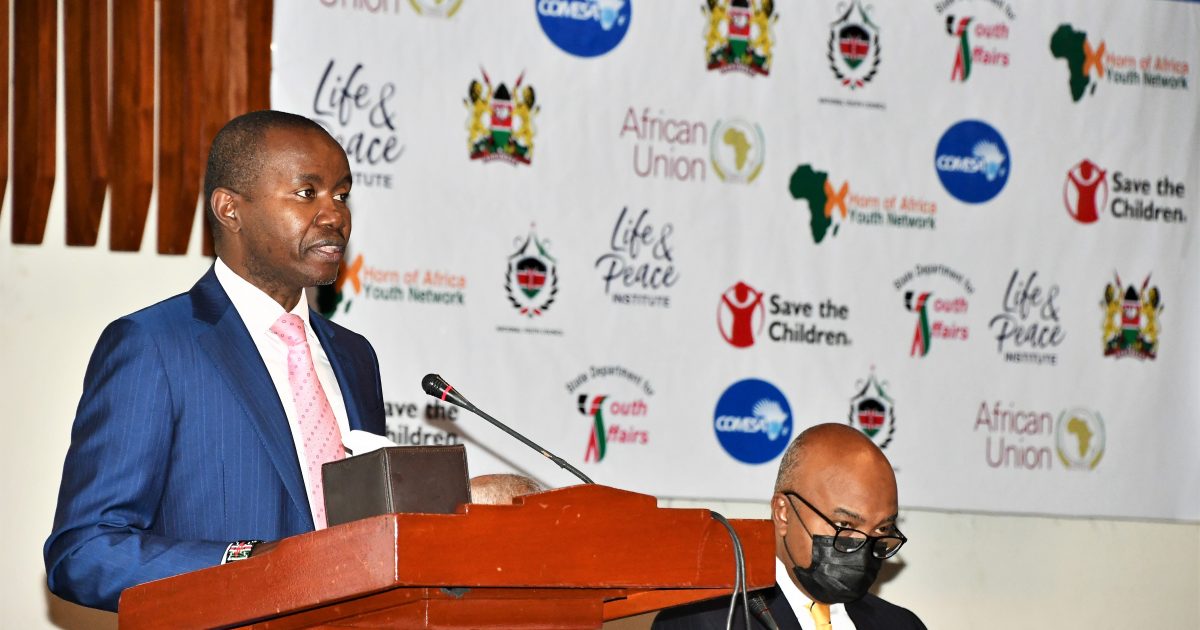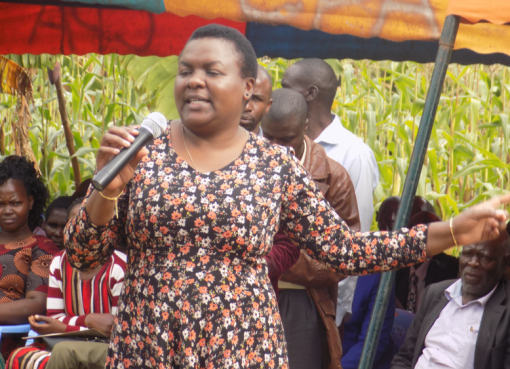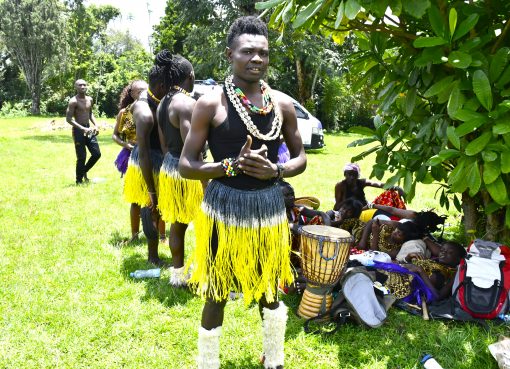African youths have been challenged to be the engine that drives peace and development in the continent.
ICT, Innovation and Youth Affairs Cabinet Secretary (CS), Joe Mucheru, said that the African Union (AU) in July 2020 adopted the Continental Framework on Youth, Peace and Security which reiterates the involvement of youth in the area of peace and security. These frameworks identify youth as pivotal actors in silencing the guns in Africa.
Mucheru was speaking in Nairobi Thursday, during a high-level ministerial conference on the role of regional economic communities in promoting the youth, peace and security agenda in the East and the Horn of Africa.
The CS said that our region is currently experiencing synonymous challenges such as insecurity, high rates of youth unemployment, and lack of meaningful participation of youth in critical decision making, which results in their disenfranchisement.
To address these challenges, Mucheru said that in December 2015, the UN Security Council adopted Resolution 2250, which is the first thematic resolution that emphasizes the engagement of youth in peace and security agenda.
“As of July 2020, over 59 percent of the Kenyan population was aged below 25 years. Indeed, these statistics show the importance of leveraging on the youth dividend in our country as a central resource to scale impact and their contribution in every aspect of Kenya’s development and the society at large,” he explained.
The CS highlighted that in 2018, the Government of Kenya adopted the Kenya National Youth Development Policy, which provides avenues for meaningful youth engagement through their effective participation in political, economic and social development processes.
“As a country we have a growing youth population, which as per the 2019 Housing and Population Census, 29 percent which translates to 13.6 million of Kenya’s population aged between 18-34 years. On the other hand, 75 percent which translates to 35.7 million Kenyans fall between 0-35 years,” explained the CS, adding that the same high youth population trend is similar across all the African States, meaning we are rich when we translate this into productivity.
He explained that Kenya has been highly involved in continental and regional initiatives on peaceful resolution of conflicts that have over the years negatively impacted on peace, stability and development.
“In 2020, as you may be aware, Kenya was elected as a non-permanent member of the UN Security Council. Kenya then took over the Presidency of the Security Council for the month of October 2021,” added the CS.
He said that on 28th of October 2021, President Uhuru Kenyatta presided over a High-Level Open Debate of the Council on the Cooperation between the United Nations, and Regional and Sub-Regional Organizations, under the theme of ‘Renewing Solidarity to Successfully Deliver Peace and Security in a Changing Conflict Environment’.
Mucheru highlighted that the wellbeing and meaningful participation of our youth in peace and security is fundamental in achieving a cohesive, peaceful and secure society.
“Steps should be therefore taken to facilitate meaningful youth participation in peace and security interventions. Youth participation has shown to be a critical element for the achievement of sustainable peace, security and development,” he said.
“In this regard, Kenya has made intentional and deliberate efforts of incorporating the youth at the forefront by ensuring young people are at the decision-making table. President Uhuru Kenyatta has so far appointed six Youth to the position of Chief Administrative Secretary (CAS’s) in various ministries,” he said.
The CS explained that this is an effort for them to acquaint them with the running of the government at the top level, adding that a number of Chief Executive officers and Board members of government agencies are also comprised of the youth.
“This year I gazetted the National Youth Council Advisory Board and the National Youth Council elections are currently underway to facilitate the Youth to elect their fellow youth so as to participate in the governance processes of this great country,” said the CS.
“As you may be aware, our President is the Global Champion for Young People’s Agenda awarded by the UN,” he said.
Muna Seid, State Minister of Women and Social Affairs, Federal Republic of Ethiopia, said that approximately 65 percent of their population is under the age of 35 years and therefore the need to involve them in decision making and social economic processes as they are the most affected by these decisions.
On his part, Mohammed Abdirizak, Minister for Foreign Affairs, Federal Republic of Somalia, said that empowering the youth will ensure peace in the region since radical groups like Al-Shabaab will have no people to recruit.
“Groups like Al-Shabaab-which means the youth or a young person have realized the potential that the young people hold and are using deceiving means to lure them into the terror network,” said Abdirizak.
At the same time, Minister for Youth and Sports in the Federal Republic of Somalia, Hamza Saeed Hamza, said that they are a youthful country with over 70 percent of the population being young people.
He said that the Federal Republic of Somalia is a strong supporter of the peace and security agenda and will continually empower the youth in its quest for peace in the region.
Young people from the National Youth Councils of Djibouti, Ethiopia, Kenya, Somalia, South Sudan and Uganda met from November 1-3 in Nairobi to discuss the youth and security agenda and presented their joint communique to the government ministers present from the different countries.
By Joseph Ng’ang’a




